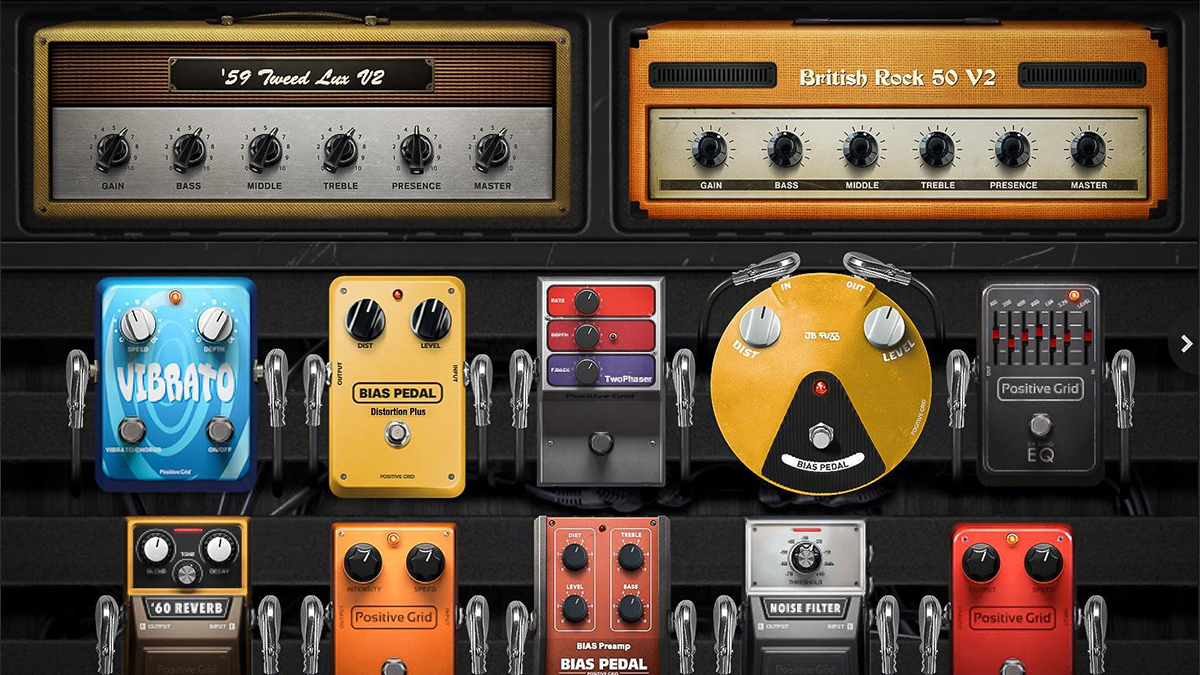MusicRadar Verdict
Bias FX Mobile 2 offers an overwhelming number of amps, cabs and effects. With its well-thought-out user interface, great sounds and flexible controller support, it takes some beating
Pros
- +
Easy to understand
- +
Brilliant sound quality
- +
Huge number of models from the full version
- +
Full MIDI controller support for footswitches
- +
Generous inclusions even in the free version
Cons
- -
The higher tiers do become expensive ‘for an app’
- -
No Positive Grid foot controller available at the time of writing
- -
No Android version yet
MusicRadar's got your back
What is it?
After a decade of growing familiar with apps and interfaces for our mobiles, we’re past the novelty of being able to play our guitar through our phone or tablet. Our main First World problem is no longer how to do it, but rather which app we choose to indulge our guitar playing on-the-go.
Positive Grid’s Bias FX was something of a game-changer in this regard, and now, five years on from its original tablet-only release, Positive Grid has followed up with Bias FX Mobile 2.
So what’s new? Well, quite a lot, actually
So what’s new? Well, quite a lot, actually. Bias FX 2 Mobile is available in four different versions, unlocked via in-app purchases: Free, Standard, Professional and Elite.
Not only has Positive Grid vastly expanded the number of amps, cabs and effects on offer, it’s added a built-in looper, its new Guitar Match function and ToneCloud preset resource across the board.
Meanwhile, the Professional and Elite versions of the app offer IR-loading capabilities, dual-mic positioning and the Elite version benefits from three new Fuzz, Time and Harmonizer models as well as 8 new HD studio rack-style effects.
There’s quite a lot to digest, and depending on which version you choose you’ll receive more of everything. For example, the Free version of the app comes with 4 amps, 8 effects pedals, to experiment with. By comparison, the $99.99 Elite version (at the time of writing currently on offer at $69.99) comes with 106 amps, 141 effects pedals.
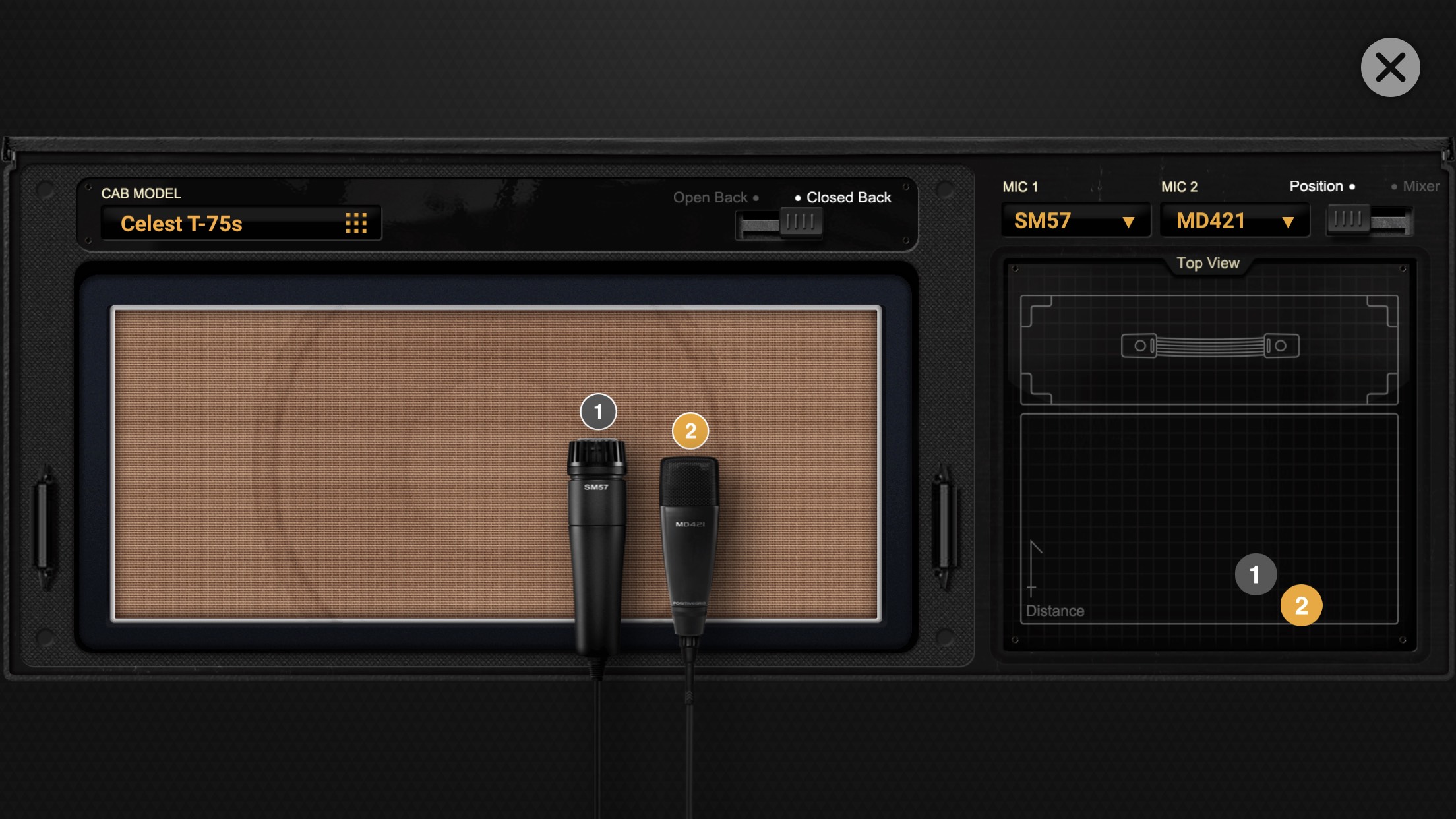
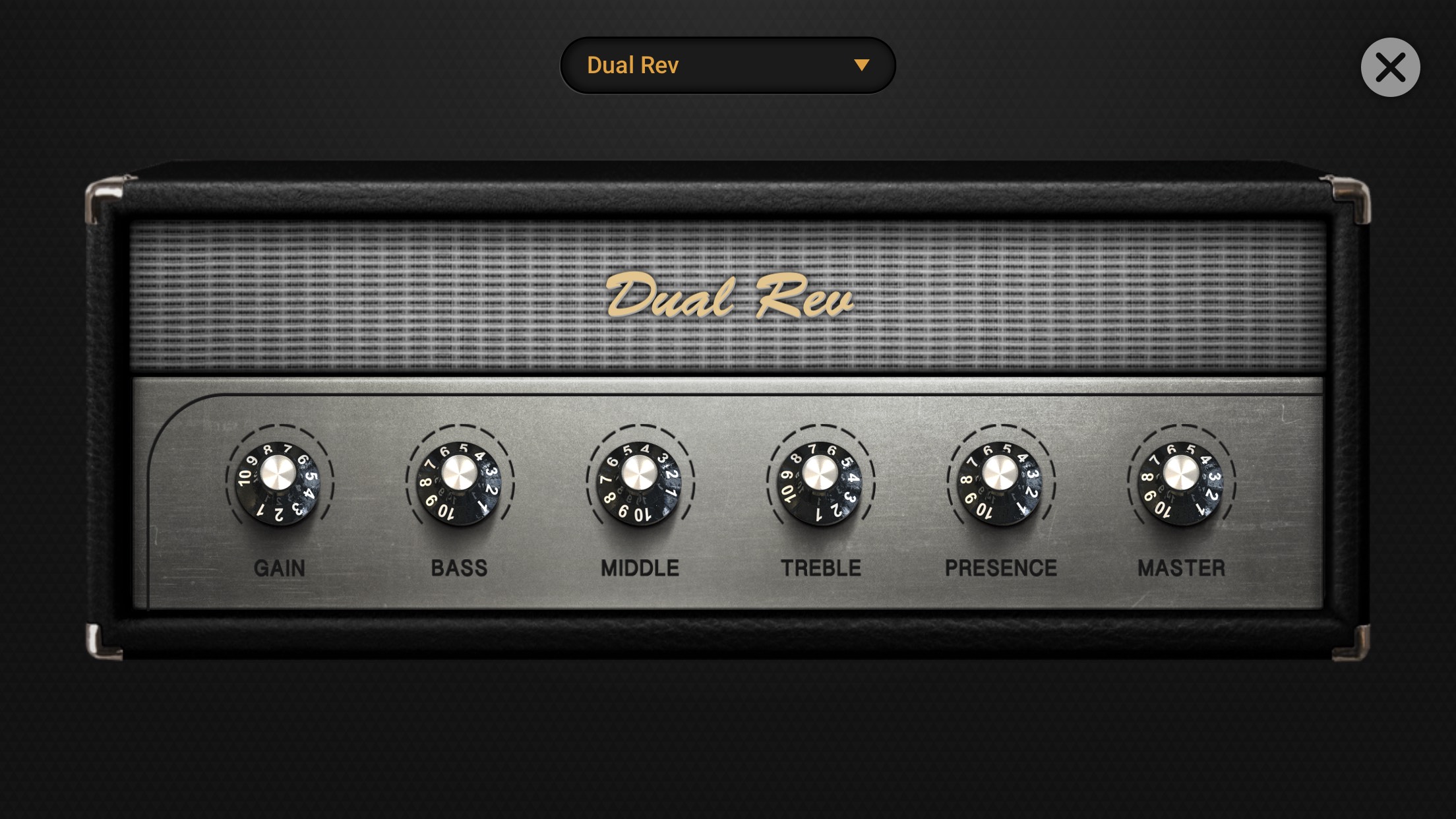
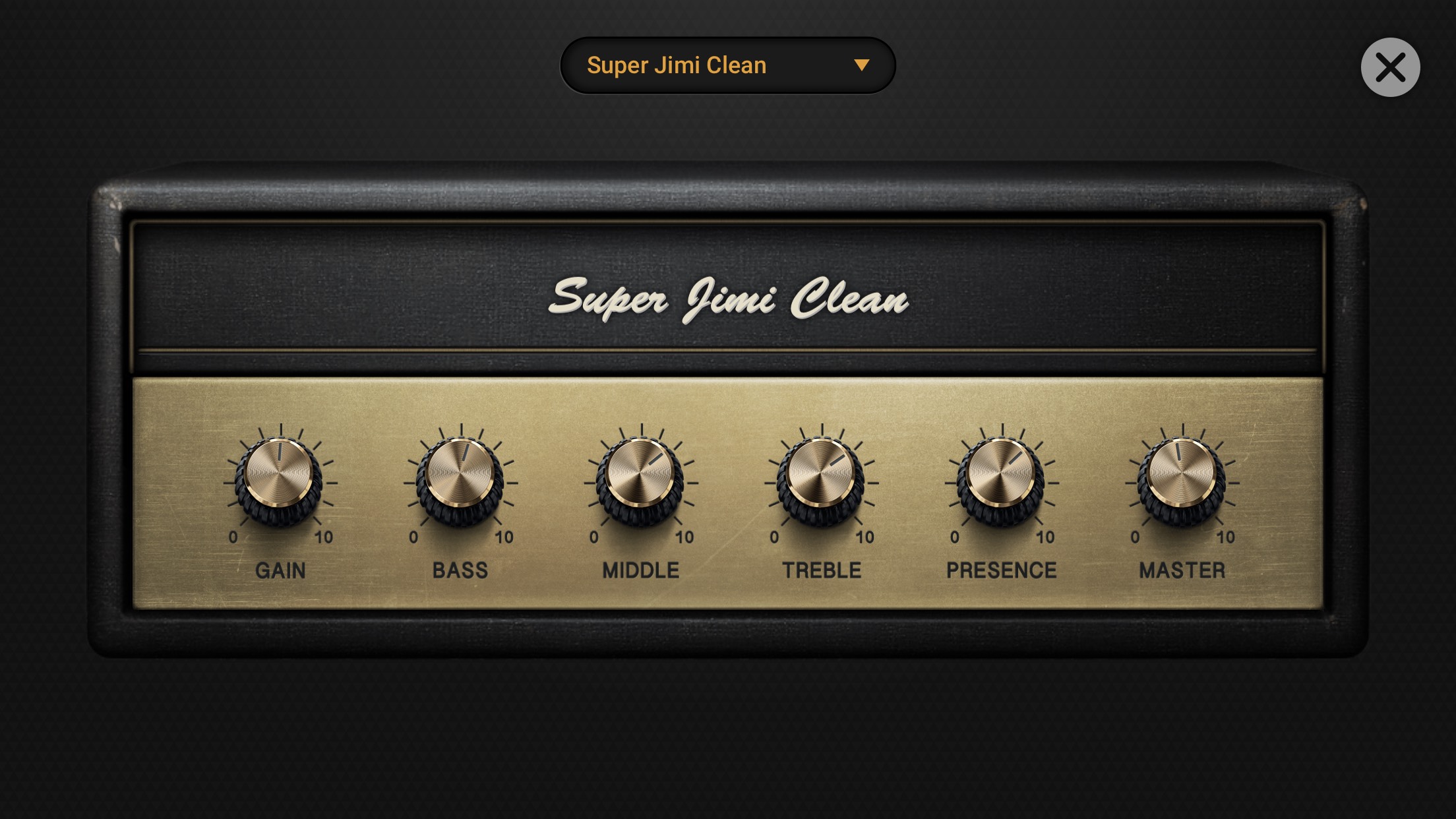
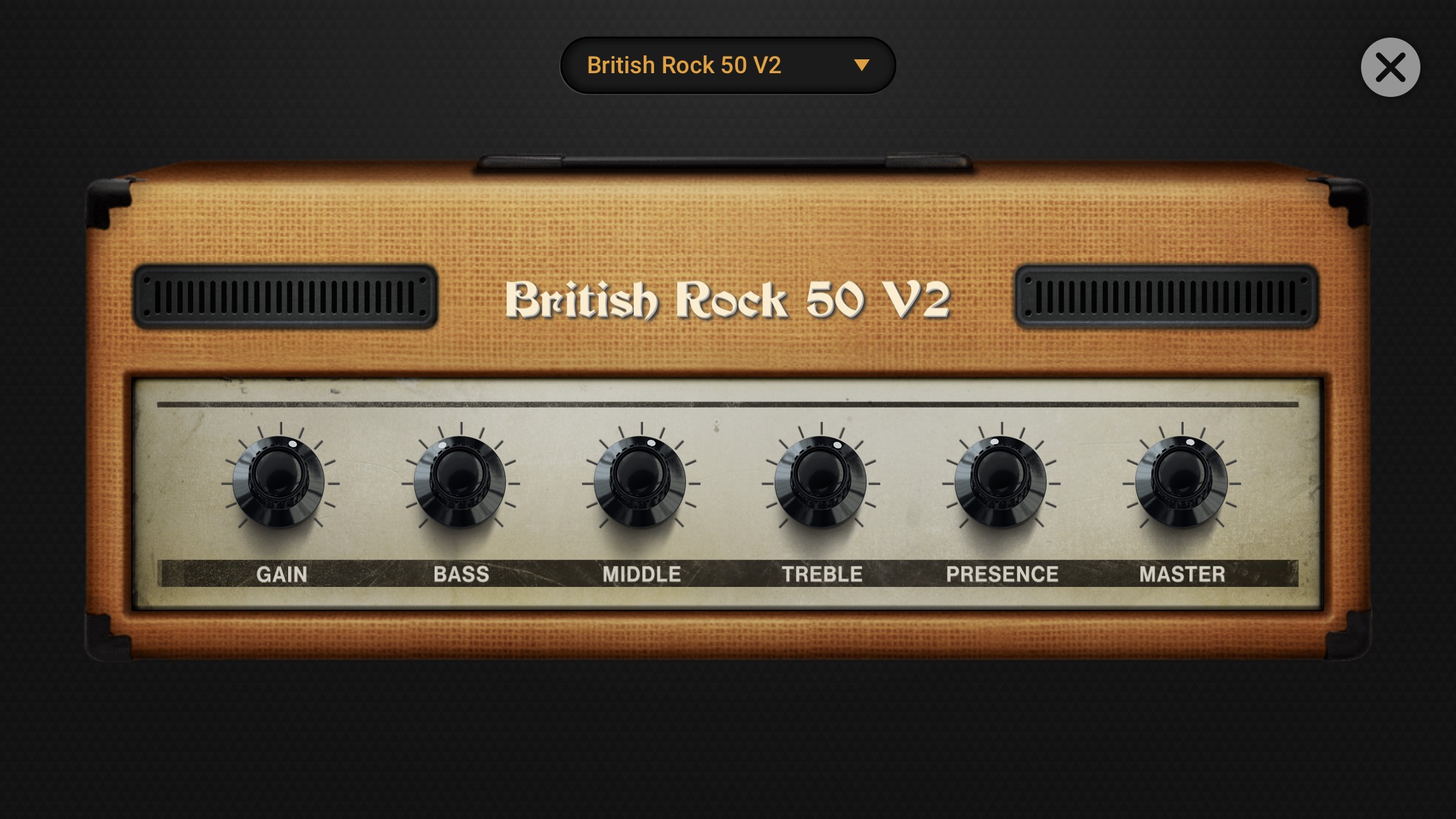
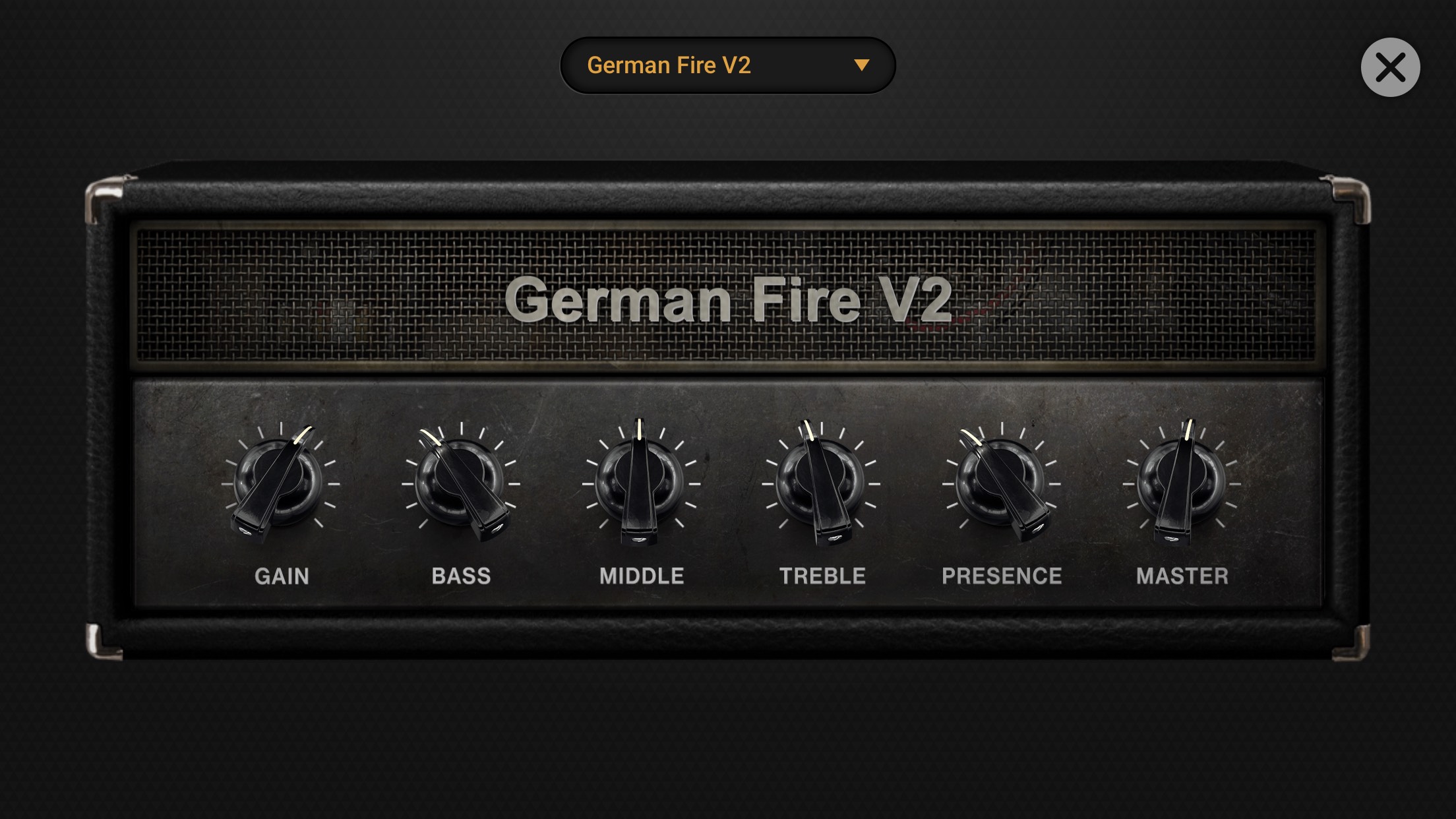
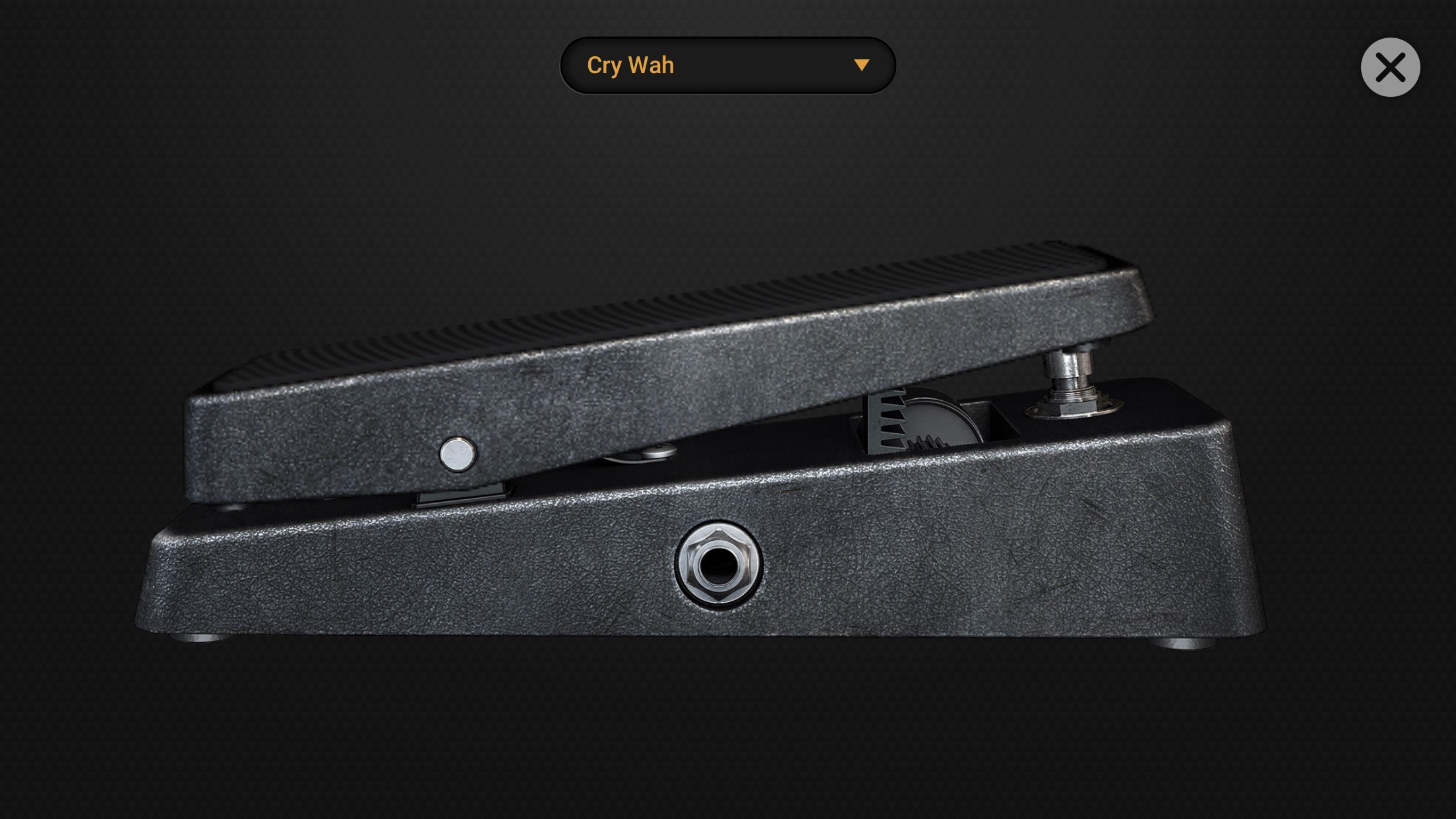
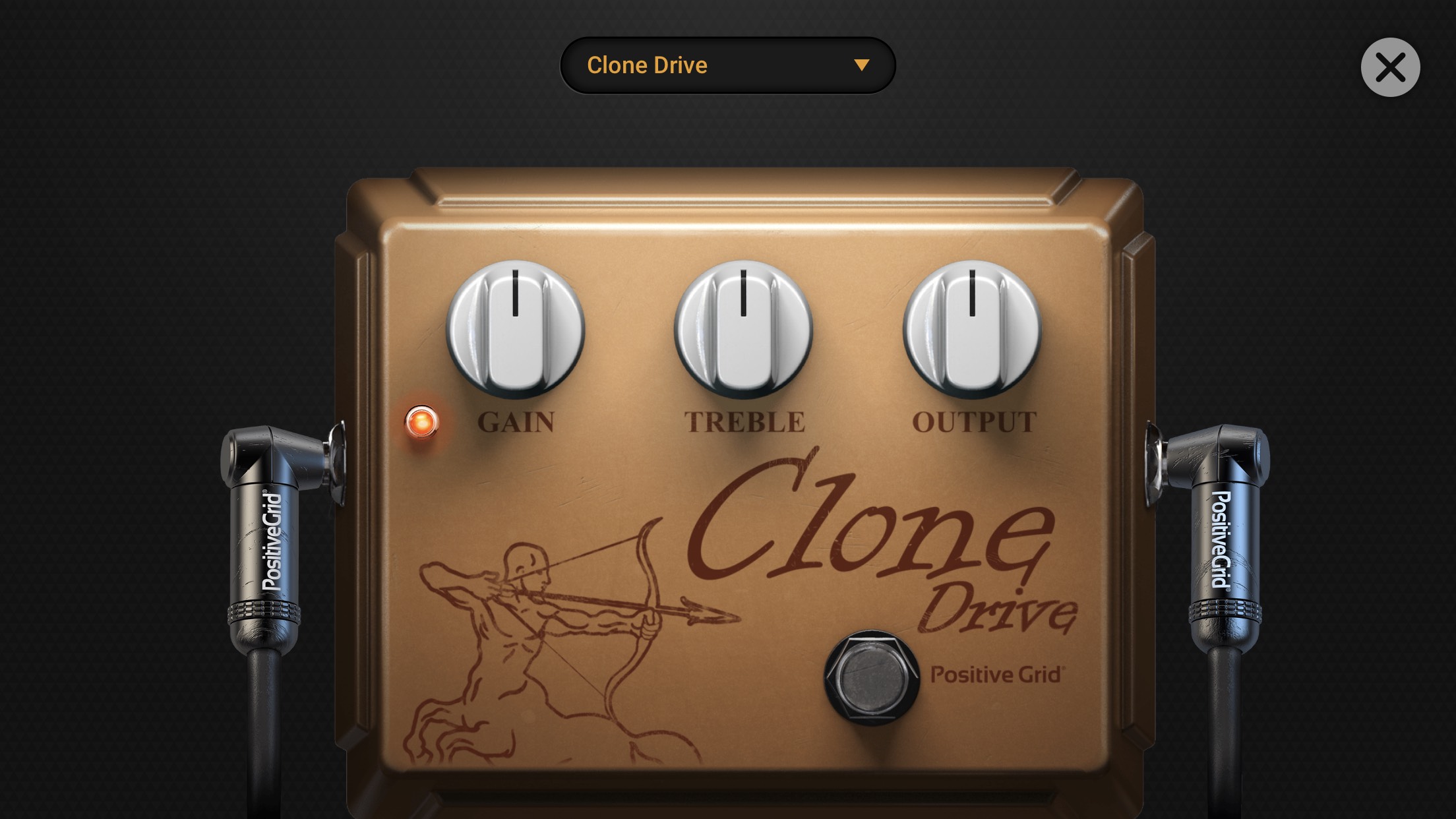
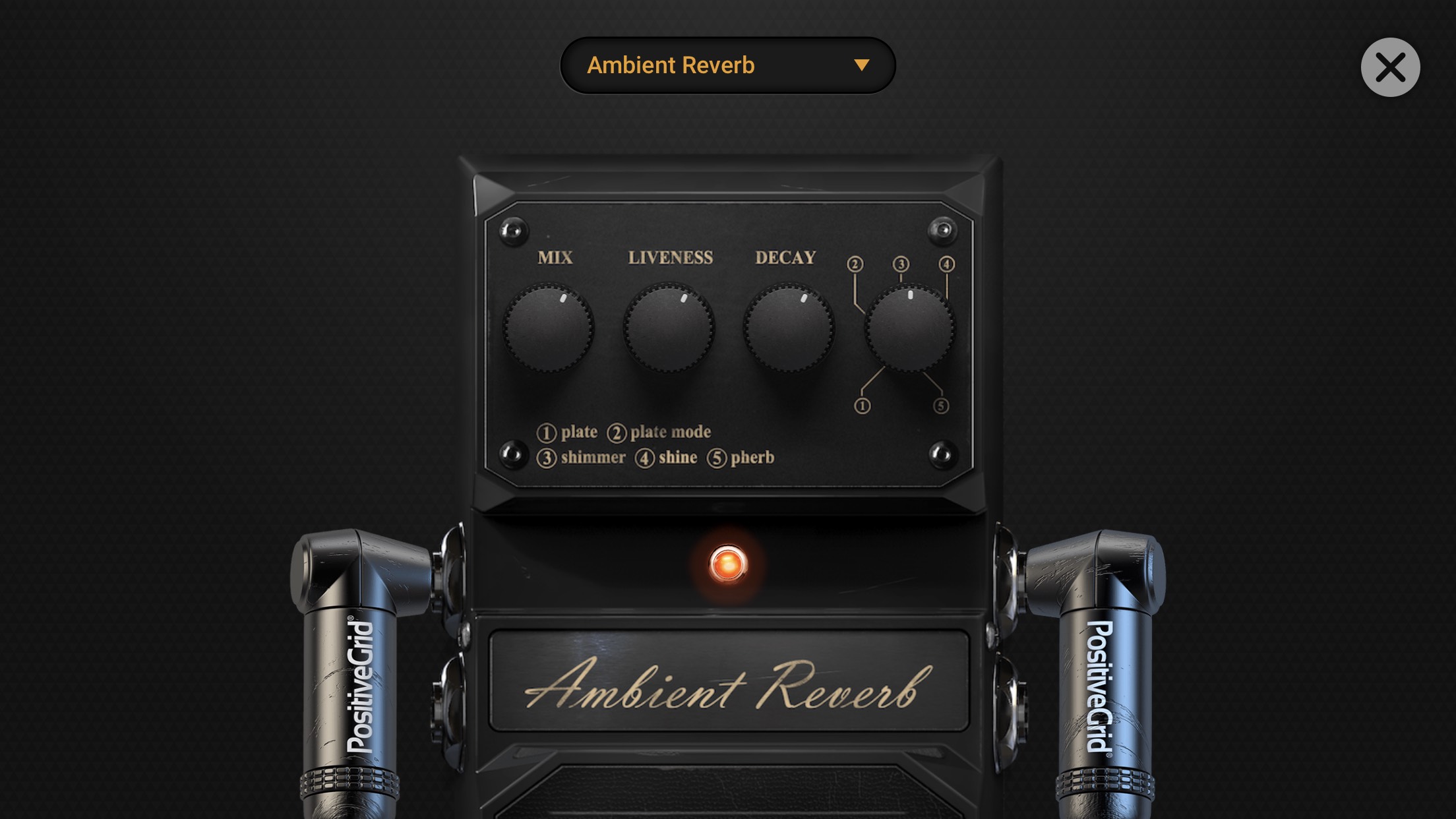
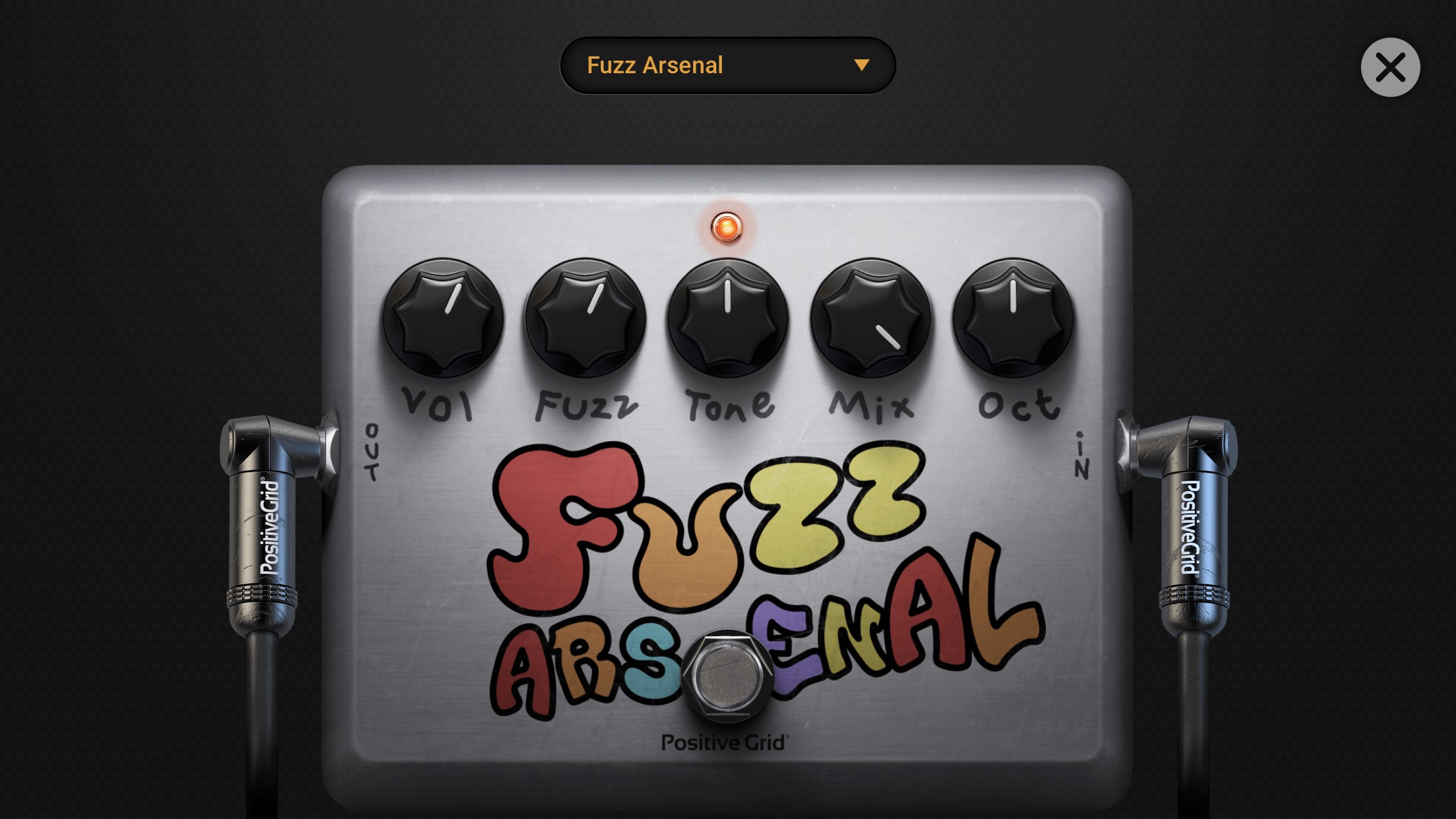
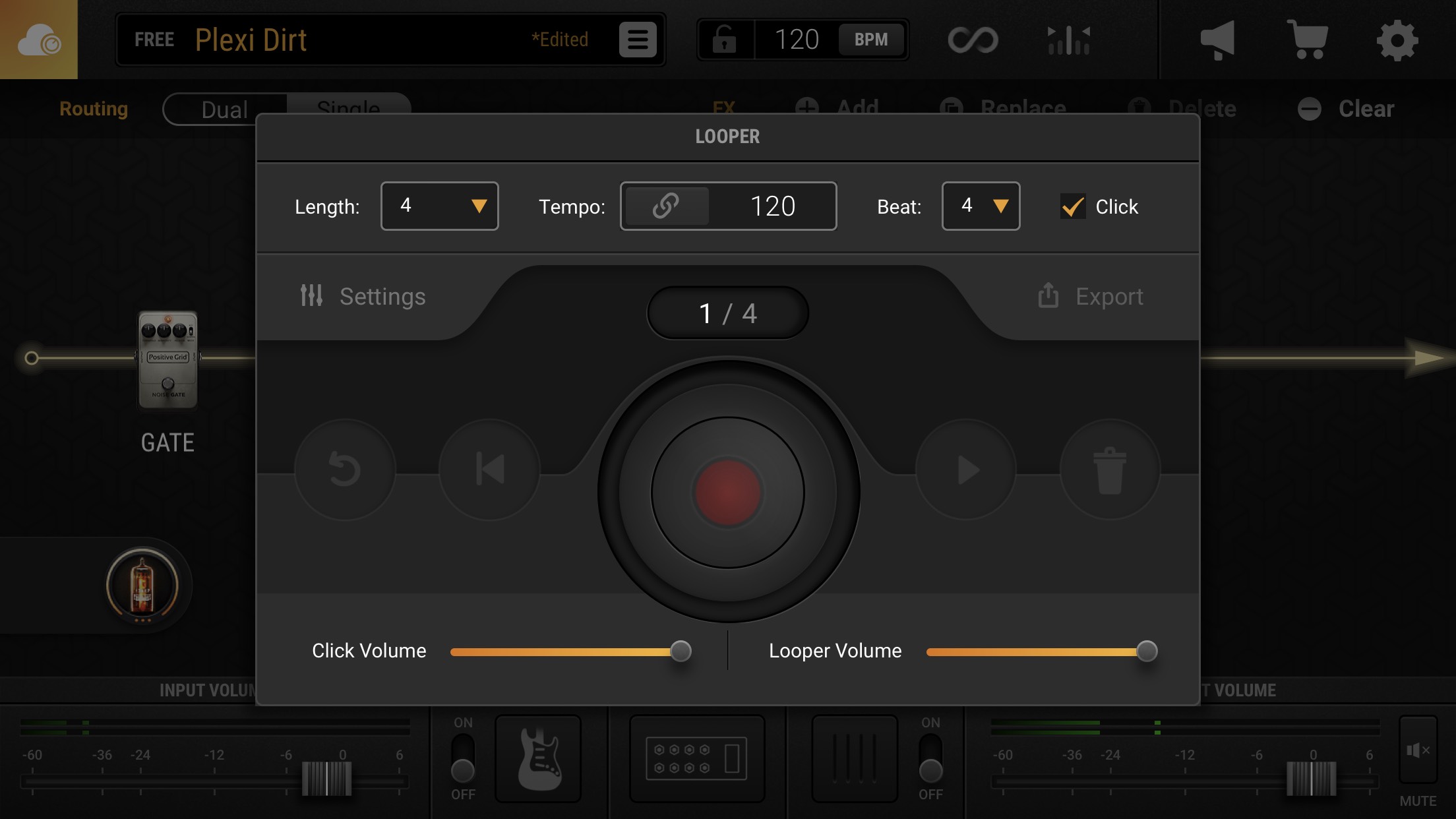
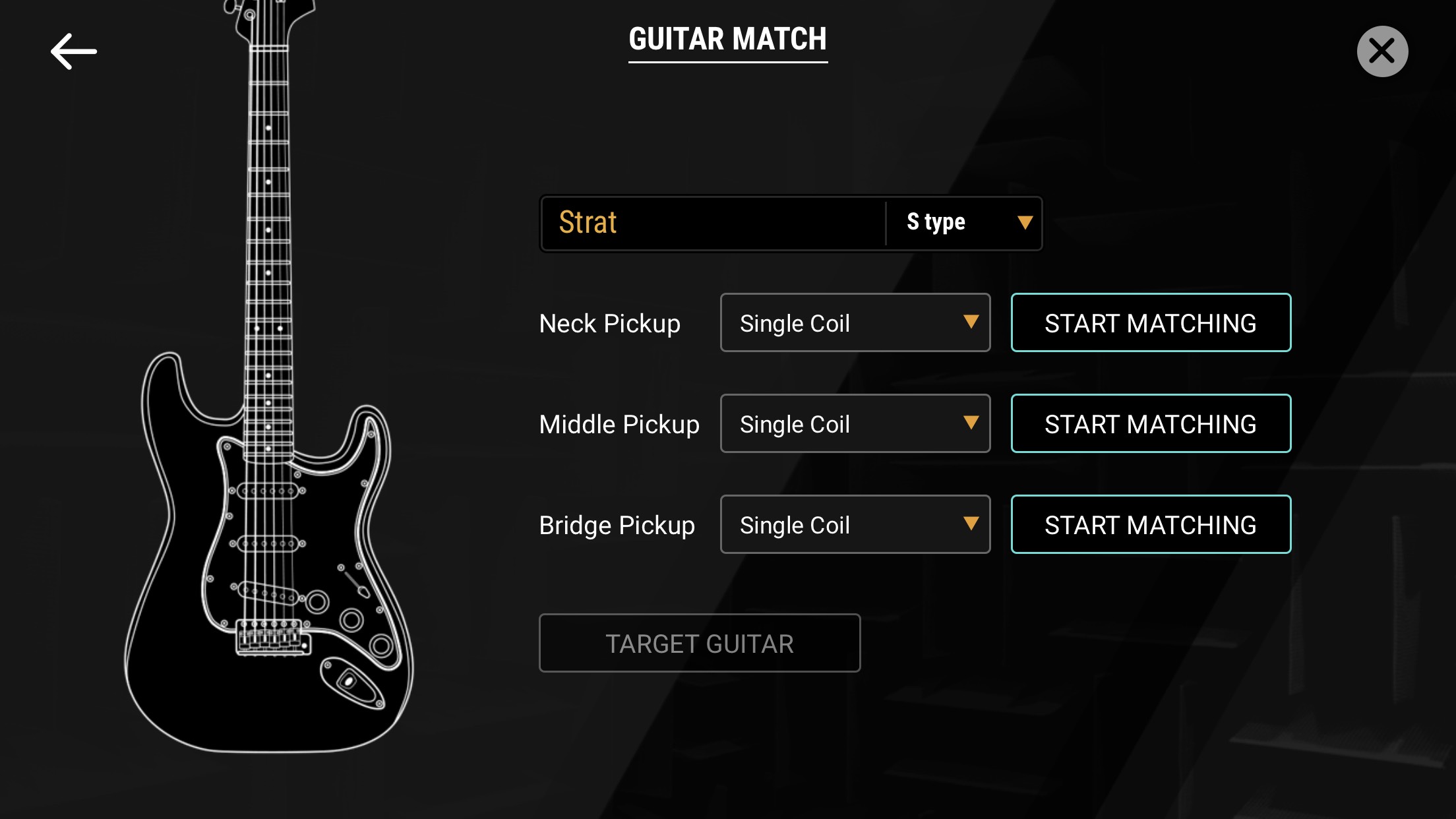
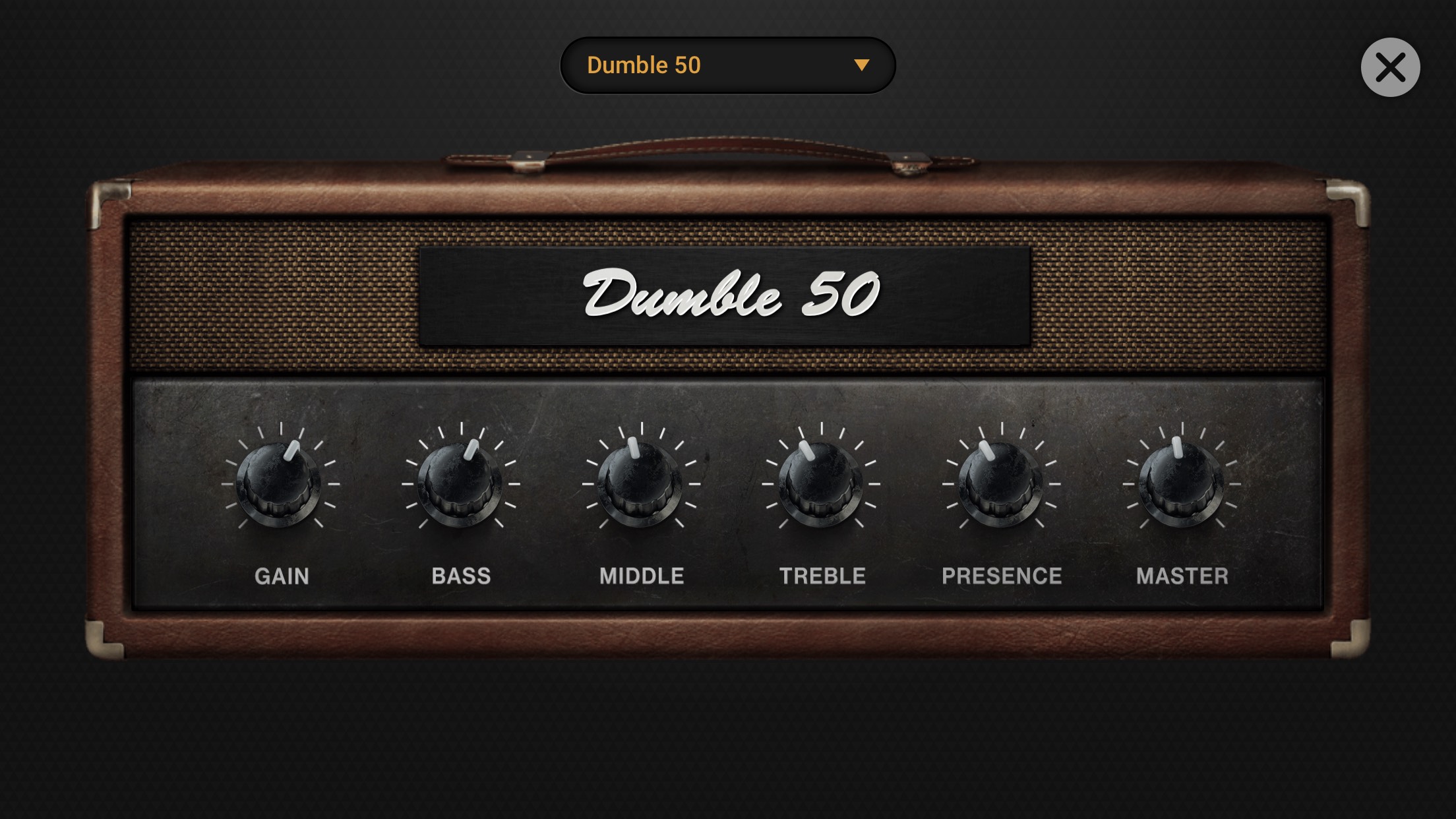
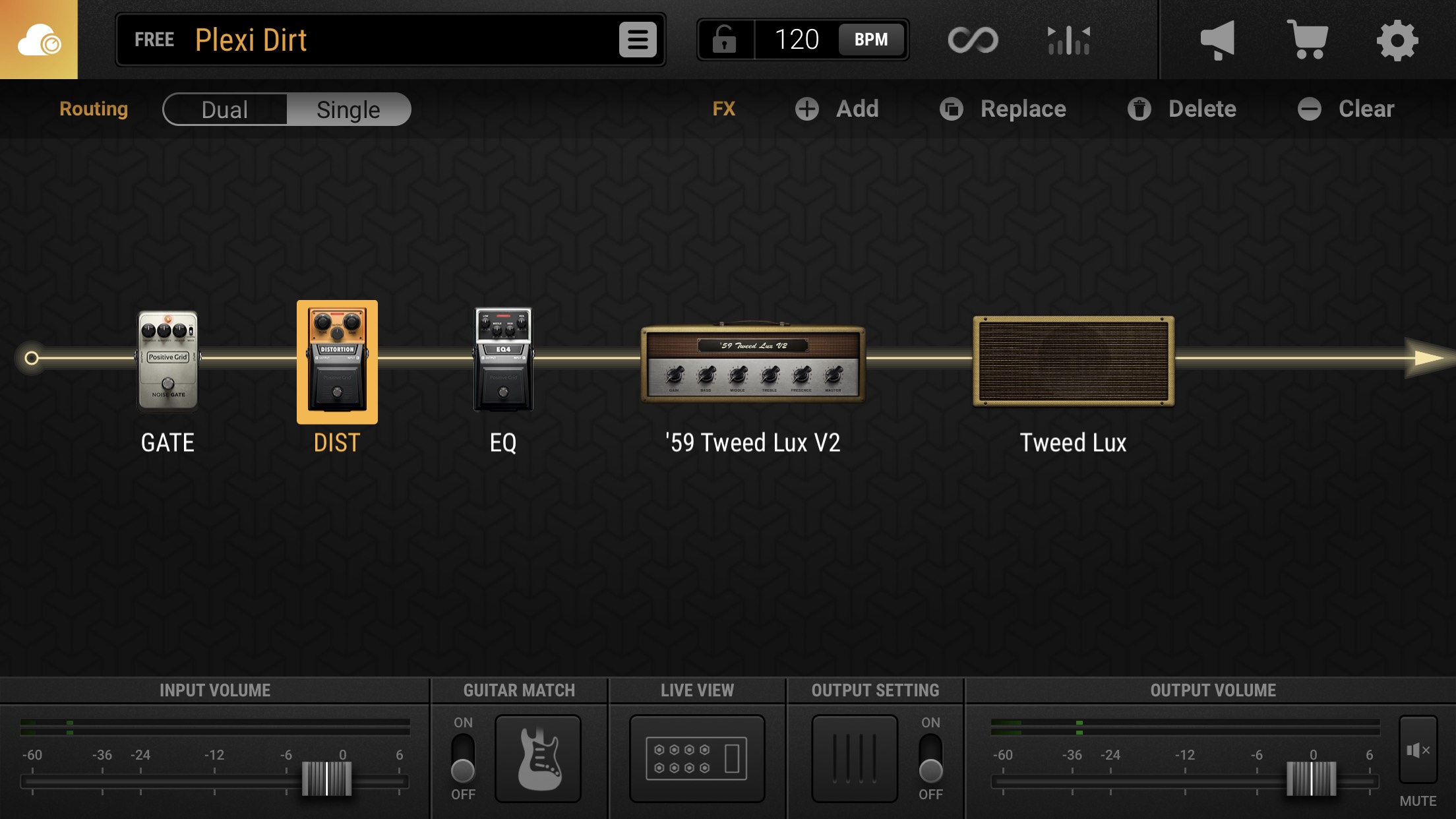
Performance and verdict
That’s a hardware-worthy number of features, and with a desktop plug-in price to match for the full Elite version, so our expectations are high!
Want all the hottest music and gear news, reviews, deals, features and more, direct to your inbox? Sign up here.
The main screen of the app displays your complete signal path, as well as this you can see your input and output levels, access the tuner, metronome, looper, Guitar Match function and output settings.
It’s laid out in an intuitive manner, with options for a dual or single signal path, allowing you to split your signal and run it through two individual amp and effects rigs before it blends them back to your stereo output.

Bias has you covered for everything from the cleanest of cleans with models based on amps such as the Roland JC-120, right up to modern high-gain amps
Making changes to your pedals and amp is as simple as double-tapping an existing pedal, or pressing the add or replace buttons if you’re starting from scratch. From here you get an enlarged view of the module you’re editing with easily-accessible controls for amps and pedals, plus the model finder drop-down menu allowing you to switch to different pedals or amps.
When you’ve finished tweaking, you simply close the screen and you’re back to your main rig overview.
Our review version of the app was the fully unlocked Elite version, giving us access to the entire arsenal of models and features, and if you were in any doubt, it’s vast.
Amp-wise, Bias has you covered for everything from the cleanest of cleans with models based on amps such as the Roland JC-120, right up to modern high-gain amps. But what we really like about the selection is that you’re by no means limited to the usual handful of ‘Tweed’, ‘Plexi’ ‘Treadplate’ models.

Positive Grid has clearly set out to deliver not just variety, but a comprehensive list of emulations including all the big guns you’d expect (Marshall, Fender, Vox, Mesa-Boogie, Peavey, Orange etc.) but there are also Dumbles, Dr Z, Matchless, Two Rock. In many cases there are multiple emulations of brands within each category too.
The same goes for the effects section, need a noise gate? (we would suggest you put one across the front of your chain), Positive Grid has provided four. Each with their own list of modes and options for you to tweak. Obviously it would be a strange effect to really get excited about, but the point here is that every section of Bias FX 2 Mobile is packed with features.

If you’ve never tried auditioning 20 delay pedals back to back, you’ll most certainly enjoy flicking through the list on offer here
The sonic quality is there to match, too. The overdrive section alone contains thirteen drive pedals ranging from Tube Screamers (both kinds) to a Klon. There are vintage Fuzz Face emulations right through to an approximation of modern classics like the Z.Vex Fuzz Factory, while the EQ, Modulation, Delay and Reverb categories are as equally well-stocked.
If you’ve never tried auditioning 20 delay pedals back to back, you’ll most certainly enjoy flicking through the list on offer here, ranging from straight digital delays through analogue-style, tape emulations, harmonised echoes, reversed delays…you get the point.
Obviously this cavernous list of gear is the top offering - unless you pay for the full Elite bundle, you’ll receive around half this amount from the Professional bundle, and fewer again if you opt for the Standard or Free versions. As mentioned, all four levels come with the looper, which in itself is a creative, fun and easy-to-use addition which we actually found ourselves going back to again and again while experimenting with different presets.
It’s a credit to Positive Grid that it is included across the board, as it could quite easily have been an add-on purchase in its own right.

The one feature that left us slightly cold is the new Guitar Match function. The idea is that you can ‘sample’ the sound of a guitar’s pickups and then apply the captured response to another guitar; even if it has completely different electronics.
On paper, it sounds brilliant, and while it works to a point, we found that it added a noticeable change in feel regardless of the guitars we used. The result was definitely an altered tone, however, it introduced a short latency, which also seems to have the effect of dulling the attack of our picking somewhat. It’s definitely a useable function, but not quite ready to morph a Strat into a Les Paul Terminator 1000-style just yet.
We should also mention that Positive Grid has included detailed MIDI control of every function of every piece of gear on the list. This means that with an addition of a MIDI foot pedal you can not only jump between presets, but switch amps, change volumes, EQ settings, drive levels, or any other function of the gear by simply ‘long-pressing’ the unit you wish to have control over, and quickly assign any of its parameters to an external switch, knob or expression pedal with the simple MIDI Learn function.
It’s no stretch to actually imagine being able to perform live using your phone, the app and a basic interface and a foot controller. We’re just not sure why Positive Grid doesn’t produce one itself!

Ten years on from us first plugging our guitar through our phones, it feels like app-based guitar processing has finally arrived without any compromise
The theme running through the app is sophistication. Ten years on from us first plugging our guitar through our phones, it feels like app-based guitar processing has finally arrived without any compromise, and in the case of Bias FX 2 Mobile, it’s even surpassing some hardware or desktop plug-ins without even a hint of exaggeration.
Regardless of which version you decide to go for - and with the Free option available, it really is a case of which rather than ‘if’ - you won’t be disappointed. However, we’d say that opting for either the Professional or Elite will give you the most bang for your buck. Cost aside, the only limitation of Bias FX 2 Mobile is the sheer investment of time. There’s a lot to get your head around, but we are certain you’ll have fun while you do.
MusicRadar verdict: Bias FX Mobile 2 offers an overwhelming number of amps, cabs and effects. With its well-thought-out user interface, great sounds and flexible controller support, it takes some beating.
Hands-on demos
Riffs, Beards & Gear
Garret J Peters
Steve Stine
Positive Grid
Specifications
Versions: Free, Standard ($19.99), Pro ($49.99), Elite ($99.99)
Amps: 4/30/63/106 (depending on package)
Pedals: 8/33/77/141 (depending on package)
Cabs: 45
Studio effects: 5 (Elite version only)
MIDI control: Yes
Contact: Positive Grid
MusicRadar is the number one website for music-makers of all kinds, be they guitarists, drummers, keyboard players, DJs or producers...
- GEAR: We help musicians find the best gear with top-ranking gear round-ups and high-quality, authoritative reviews by a wide team of highly experienced experts.
- TIPS: We also provide tuition, from bite-sized tips to advanced work-outs and guidance from recognised musicians and stars.
- STARS: We talk to musicians and stars about their creative processes, and the nuts and bolts of their gear and technique. We give fans an insight into the craft of music-making that no other music website can.
